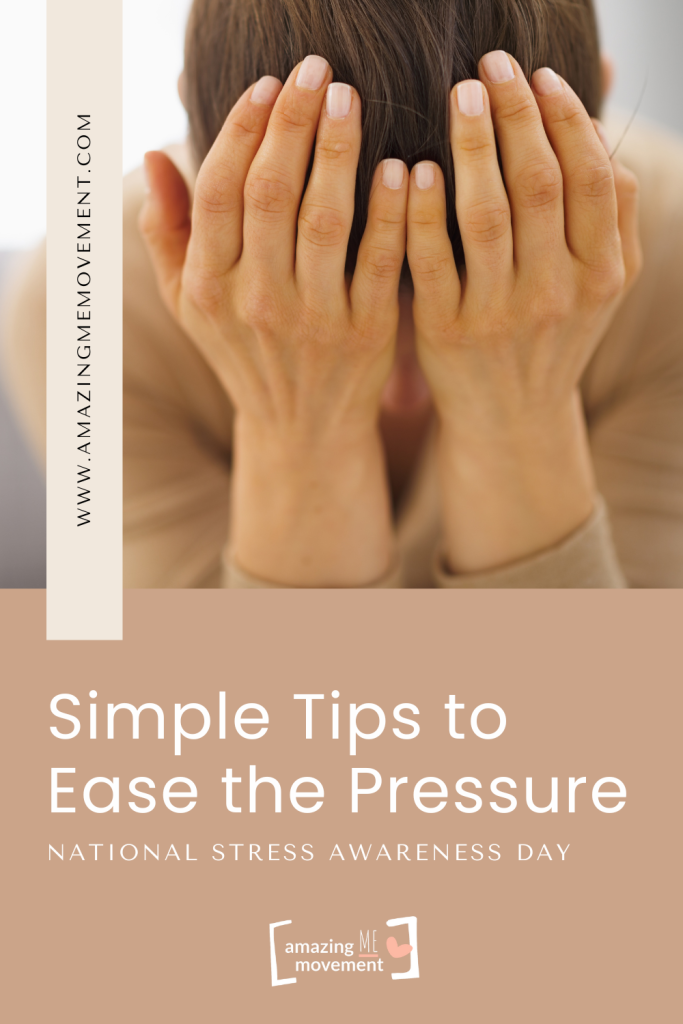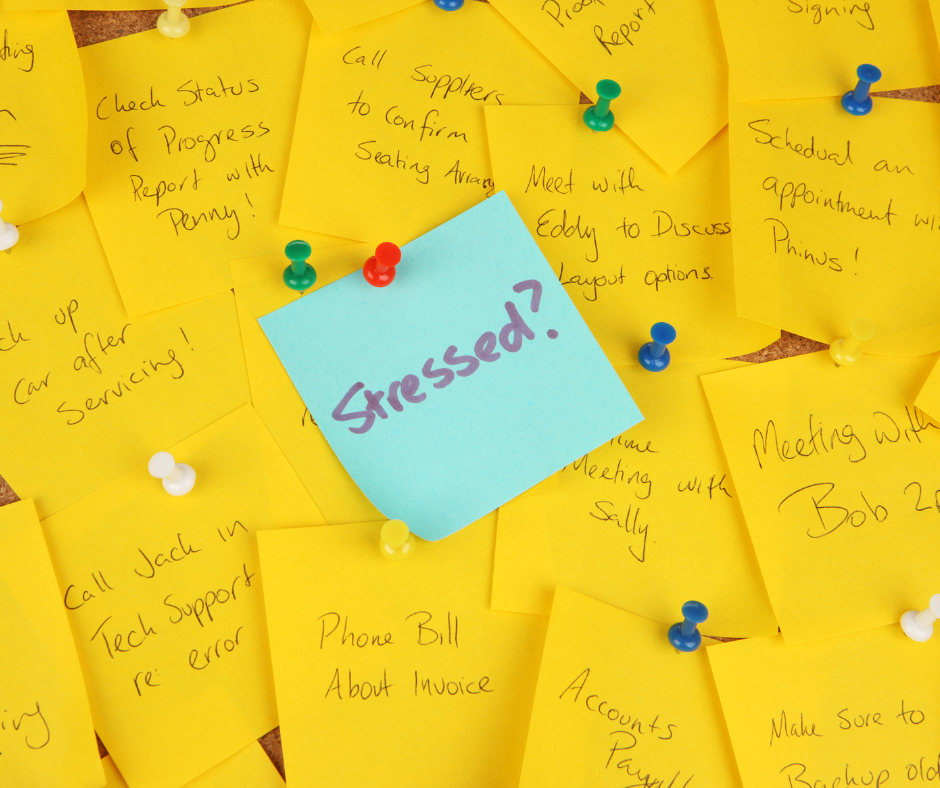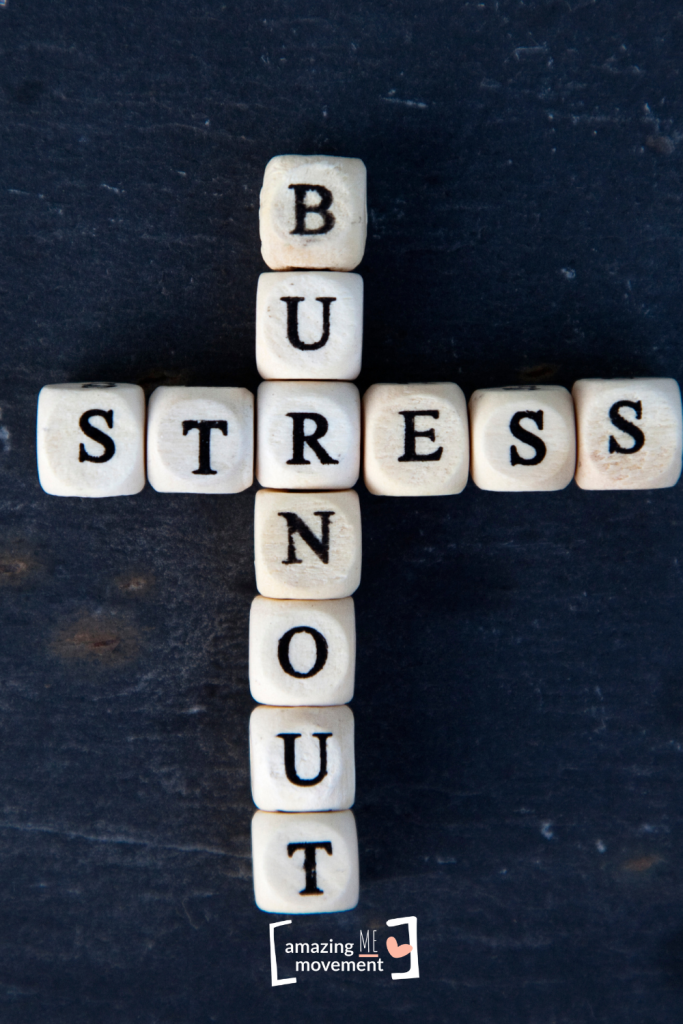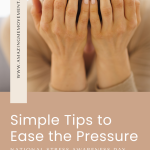Imagine waking up to an endless to-do list—work deadlines, family duties, and household chaos swirling in your mind. If this sounds familiar, you’re not alone; many women feel the weight of daily stress. National Stress Awareness Day, celebrated on the first Wednesday of November, was established in 1998 by the International Stress Management Association. This day encourages us to recognize stress and its impact on our lives.
Managing stress is vital for our health, especially for women juggling multiple roles. Chronic stress can lead to serious health issues, but by learning effective coping strategies, we can enhance our well-being. Let’s explore how to ease the pressure together!

What is National Stress Awareness Day?
National Stress Awareness Day serves as a reminder to recognize the common stressors in our lives and the importance of managing them. Established to promote awareness of stress and its effects, this day encourages individuals and organizations to take proactive steps toward reducing stress and enhancing mental health.
History:
- 1998: The International Stress Management Association (ISMA) founded National Stress Awareness Day to highlight the significance of understanding stress and its impact on overall health.
- 1998: Inaugural celebration, focusing on workplace well-being and stress management strategies.
- 2000s: The observance expanded to emphasize stress education for individuals, promoting various coping techniques.
- 2018: Introduction of International Stress Awareness Week, coinciding with National Stress Awareness Day to further encourage stress management initiatives.
Understanding the background and implications of National Stress Awareness Day helps us appreciate its importance and motivates us to prioritize our mental health.

The Impact of Stress on Women
Statistics:
- Health Issues: According to the American Psychological Association, 75% of women report experiencing physical symptoms of stress, such as headaches, fatigue, and digestive issues.
- Mental Health: Women are nearly twice as likely as men to be diagnosed with anxiety disorders, often exacerbated by stress.
- Chronic Stress: Studies indicate that women facing chronic stress have a 30% higher risk of developing heart disease compared to their less-stressed counterparts.
Common Triggers:
Women often juggle numerous responsibilities, leading to various everyday stressors, such as:
- Workplace Pressures: Tight deadlines, demanding bosses, and the struggle for work-life balance can create significant stress.
- Family Obligations: Managing household chores, caring for children or aging parents, and maintaining relationships can feel overwhelming.
- Social Expectations: The pressure to excel in multiple roles—career woman, mother, partner—can lead to feelings of inadequacy and stress.
Emotional Well-being:
Stress profoundly affects mental health in women. Chronic stress can lead to:
- Anxiety and Depression: Prolonged exposure to stress hormones can contribute to feelings of despair and anxiety, affecting daily functioning and overall quality of life.
- Lower Self-Esteem: Constantly feeling overwhelmed can diminish confidence, making it harder to face challenges.
- Social Withdrawal: High stress levels may lead women to isolate themselves from friends and family, further exacerbating feelings of loneliness.
Understanding the impact of stress on women is crucial in advocating for better stress management strategies and support systems. Recognizing these elements allows for healthier coping mechanisms and fosters a more supportive community.

5 Simple Tips to Ease Stress
Feeling overwhelmed? Here are some easy and effective ways to help you find calm and regain control in your busy life.
Tip 1: Mindfulness Practices
Mindfulness is the practice of being fully present in the moment, without judgment. It helps reduce stress by allowing you to step back from your thoughts and feelings, creating a sense of awareness and acceptance. By focusing on the here and now, mindfulness can improve your emotional well-being and enhance your ability to manage stressors effectively.
Benefits:
- Reduces Anxiety: Mindfulness can lower levels of anxiety and worry, helping you feel more centered.
- Improves Focus: Staying present can enhance your concentration and productivity in daily tasks.
- Promotes Emotional Health: Regular mindfulness practice leads to improved mood and overall mental resilience.
Tip 2: Stay Active
Regular physical activity is one of the most effective ways to combat stress. Exercise releases endorphins, the body’s natural mood lifters, which can boost your mood and decrease feelings of anxiety. Additionally, staying active helps improve sleep, increases energy levels, and enhances overall mental clarity—providing invaluable stress relief benefits.
Suggestions for Fun Workouts:
- Yoga: Consider joining a local class or using online videos to explore different styles like Hatha, Vinyasa, or restorative yoga.
- Dance: Try styles like Zumba, hip-hop, or even ballroom dancing—anything that gets you moving and has you smiling!
- Walking or Jogging: A brisk walk or jog in a nearby park can do wonders. The change of scenery and fresh air can enhance your mood and clear your mind.
- Group Fitness Classes: Look for local group classes like Pilates, kickboxing, or spin. The camaraderie of working out with others can help motivate you while reducing feelings of isolation.
Tip 3: Connect with Others
Connecting with others is vital for emotional well-being and acts as a powerful buffer against stress. Sharing your thoughts and feelings with friends or family can provide much-needed support, encouragement, and perspective. Engaging with a community fosters a sense of belonging, reminding you that you are not alone in your struggles.
Tip 4: Create a Self-Care Routine
A self-care routine is essential for maintaining mental and emotional well-being. By prioritizing self-care, you acknowledge your needs and replenish your energy. Here are some effective self-care practices to incorporate into your routine:
- Journaling: Take a few minutes each day to write down your thoughts, feelings, and experiences. Journaling can help clarify emotions, reduce anxiety, and provide a safe space to reflect on your day.
- Pampering Yourself: Simple acts like putting on a favorite face mask, enjoying a good book, or sipping herbal tea can also serve as little moments of indulgence.
- Hobbies: Engage in activities that bring you joy, whether it’s painting, gardening, knitting, or playing a musical instrument. Hobbies provide a creative outlet and can be a fantastic way to unwind and disconnect from daily stressors.
It’s easy to neglect your own needs when life gets hectic, but remember, you can’t pour from an empty cup. Prioritize self-care by scheduling it into your calendar—whether it’s a few minutes for journaling in the morning or an evening dedicated to your favorite hobby.
Taking time for yourself isn’t selfish; it’s necessary for maintaining balance and resilience. Embrace self-care as a vital part of your routine, and watch as it transforms your stress levels and overall well-being!

Tip 5: Seek Professional Help
Recognizing when to seek professional support is vital for your mental well-being. Consider therapy if you experience persistent stress that interferes with your daily life, prolonged sadness or anxiety, difficulty coping with responsibilities, or the need for support after a traumatic event.
Seeking help is a sign of strength, and it’s important to normalize this practice within our communities. You can do this by sharing your mental health journey openly with friends and family, encouraging loved ones that it’s okay to seek help when needed, and educating yourself about mental health issues to reduce stigma.
Remember, seeking professional help is a crucial step in your self-care journey, and embracing the strength in reaching out for support can lead to a healthier, more balanced life.
Making Stress Awareness Part of Your Routine
By making stress awareness part of your daily routine and setting boundaries, you can cultivate a more balanced and fulfilling life. Embrace these habits and prioritize your mental health, leading to a stronger, more resilient you.
Daily Practices:
Incorporating stress management into your daily life can make a significant difference. Start your day with a few minutes of mindfulness or deep breathing exercises. Even small actions, like taking short breaks during work, can help clear your mind and reduce stress.
Establishing a routine that includes physical activity, such as yoga or brisk walks, can significantly boost your mood. Aim to include these practices in your schedule, treating them as essential appointments. By prioritizing stress relief activities, you create a healthier lifestyle and foster resilience.
Setting Boundaries:
Learning to say no is a vital skill for managing stress effectively. It’s okay to decline additional responsibilities that may overwhelm you. Setting clear boundaries allows you to prioritize your well-being and personal time.
Communicate your limits to friends, family, and coworkers. Let them know when you need time to recharge. Remember, taking care of yourself is essential to being your best self for others.

Conclusion
In conclusion, recognizing and managing stress is essential for living a healthy, fulfilling life, especially for women juggling multiple responsibilities. National Stress Awareness Day serves as a reminder that we must pay attention to our mental well-being. By understanding the impact of stress and implementing practical strategies, we can reclaim control over our lives and improve our overall happiness.
We encourage you to take proactive steps for your mental health. Make self-care a priority, set healthy boundaries, and don’t hesitate to seek support when needed. Remember, you are not alone in this journey, and taking care of yourself is a beautiful act of self-love.
Ready for more tips on living your best life? Check out our other articles for helpful insights and inspiration!
20 Quotes On Finding Your Passion For A Fulfilling Life
The Importance Of Self-Reflection: Dealing With Life’s Complexities
20 Quotes About Having Fun: Finding Happiness In Life
- 10 Ways to Overcome Procrastination and Get Things Done – 03/03/2025
- How to Overcome Imposter Syndrome and Thrive – 27/02/2025
- 10 Time Management Hacks You’ll Wish You Knew Sooner – 27/02/2025








Leave a Reply